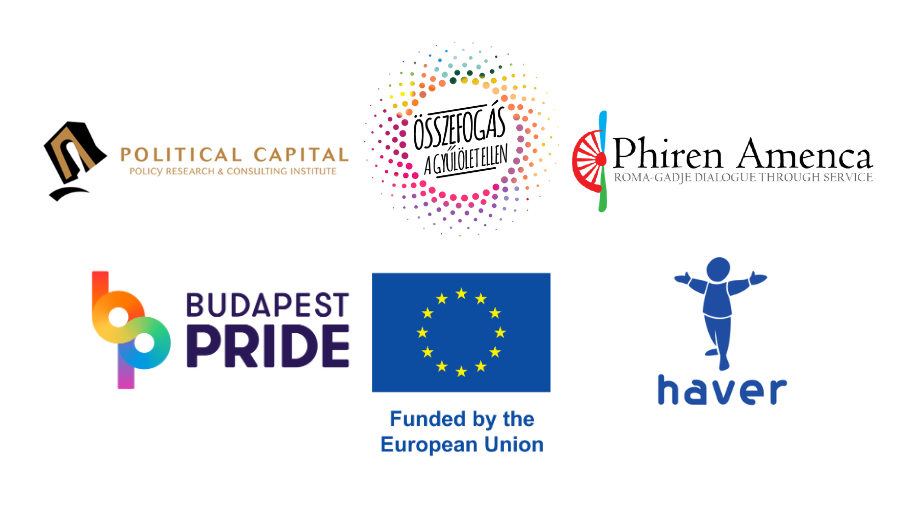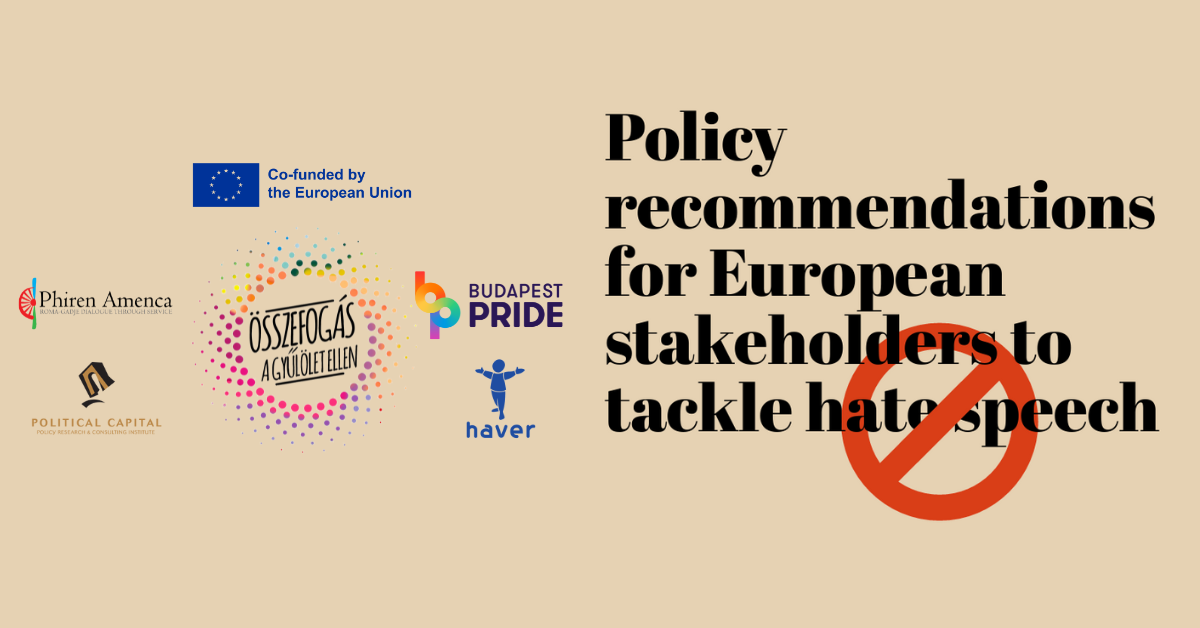EN
The phenomenon of hate speech and offensive speech has become common in personal interactions, political discourse, and online and offline environments. However, we do not have to accept this status quo. Instead, we must actively confront and combat it. After years of dedicated professional effort, we have developed proposals for the European Union and the Member States, law enforcement, local governments, civil society, the education system, and the media. By implementing our recommendations, prejudice can be significantly reduced, helping to create a more inclusive society.
Hate speech, in the broadest meaning, which includes not only hate speech regulated by law but also insulting, offensive and degrading speech, causes serious harm at the individual, community and societal levels. Hate speech deliberately uses words and images to degrade and exclude others. It reinforces feelings of fear and rejection. Members of vulnerable communities that are victims of hate speech and targets of hostility tend to hide and deny their identity. If strong and widespread, hate speech against minority groups can easily become the norm in society, leading to, among other things, distancing from the respective minority groups and increased prejudice and hatred from the majority society.
Therefore, collective action to combat it is a priority not only for decision-makers and the victimised communities and their members but also for all of us. Taking action against hate speech means standing up for democracy and defending democratic values and rights. We developed our proposals for domestic and international stakeholders aligning with these thoughts. All recommendations are based on the findings of the national and international conferences, workshops and the 10-session working group process organised under the CHAD project. We are grateful to the participants of these events who contributed their expertise, experience and views to the formulation of the recommendations.
The recommendations for the Hungarian stakeholders are available in Hungarian and in English (pdf).
The international recommendations are available in Hungarian and in English (pdf).
HU
A gyűlölet- és sértő beszéd jelensége mindennapossá vált a személyes interakciókban, a politikai közbeszédben, az online és az offline térben is. Ezt azonban nem kell elfogadnunk, lehet és kell is tenni ellene. Erre vonatkozóan – több éves szakmai munka nyomán – két javaslatcsomagot készítettünk: egyet a hazai, egyet pedig az európai jogalkotók, jogalkalmazók, civil széféra, valamint az oktatási rendszer és a média szereplői számára. Ajánlásaink megvalósításával jelentősen visszaszoríthatók az előítéletek, elősegítve egy, a mainál befogadóbb társadalom kialakítását.
A gyűlöletbeszéd, valamint a tágabban értelmezett gyűlöletkeltő és sértő beszéd komoly károkat okoz egyéni, közösségi és társadalmi szinten egyaránt. A gyűlöletbeszéd tudatosan használ egyes szavakat személyek vagy épp csoportok lealacsonyítására, kirekesztésére. Erősíti a sérülékeny közösségek tagjaiban a félelmet és az elutasítottság érzését, akik ezért hajlamosak elrejteni és megtagadni identitásukat. Ha egy kisebbségi csoporttal szembeni gyűlöletbeszéd erőteljessé válik, az könnyen normává válhat, ami többek között az adott kisebbségi csoporttal szembeni távolságtartáshoz, az előítéletek erősödéséhez és fokozott gyűlölködéshez vezethet.
Ezért kiemelten fontos a gyűlölet- és sértő beszéd elleni közös fellépés, ami nemcsak a döntéshozók és a célkeresztbe kerülő, áldozattá váló közösségek és tagjaik feladata, hanem a társadalom felelőssége is. A gyűlöletbeszéd elleni fellépés nem más, mint a demokrácia melletti kiállás, a demokratikus értékek és jogok védelme. Ennek érdekében és ezeket szem előtt tartva dolgoztuk ki javaslatainkat hazai és nemzetközi szereplők számára egyaránt. Mindkét ajánláscsomag alapját a CHAD projekt keretében rendezett hazai és nemzetközi konferenciák, workshopok és a 10 alkalomból álló munkacsoport-folyamat adják. Hálás köszönettel tartozunk e rendezvények résztvevőinek, akik szakmai tudásukkal, tapasztalataikkal és véleményükkel segítették és támogatták az ajánlások megfogalmazását.
A hazai ajánlások magyar nyelven itt (pdf) elérhetőek el.
A nemzetközi ajánlások angol nyelven itt (pdf) elérhetőek el.

The „CHAD – Countering Hate Speech and Hurtful Speech against Diversity: Roma, LGBTIQ, Jewish and Migrant Communities” project (project nr. 101049309) is funded by the Citizens, Equality, Rights and Values Programme (CERV) of the DG Justice, European Commission and coordinated by RGDTS Nonprofit Llc. in partnership with Haver Informal Educational Foundation, Rainbow Mission Foundation and Political Capital. Views and opinions expressed are however those of the author(s) only and do not necessarily reflect those of the European Union or the European Commission. Neither the European Union nor the granting authority can be held responsible for them.


